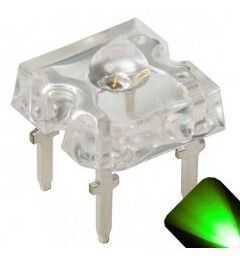- The World’s Strongest Material- 200 times stronger than Steel!
- Yet Flexible
- Conducts Electricity Better than Copper
Graphene compares in significance with the Stone Age, Bronze Age and Iron Age. We will call Graphene the Graphene Age. Graphene is an allotrope (form) of carbon which consists of a single layer of carbon atomes. They form a hexagonal lattice of 2D material. It is ultra-light but also extremely tough. It is 200 times stronger than steel yet flexible. It is the thinnest material possible and is transparent. It is a better conductor than copper and is a perfect barrier.
The University of Manchester is working with Graphene in the following applications:
- Energy
- Membranes
- Composites and Coatings
- Biomedical
- Sensors
- Electronics
- Wearable Technology
Unbrakeable Mobiles
Indium-tin oxide is the material used for touch screens now, but it is brittle. Graphene’s flexibility and durability together with its conductivity properties will transform everyday devices. You could wear your smartphone on your wrist. Your tablet could be so thin and flexible, you could roll it up and put it in your top pocket. You’d never have to worry about braking your phone again. It would be virtually indestructible.
Graphene in Batteries
Samsung have developed graphene batteries that can now charge mobile phones and car batteries faster. Much faster! With a conventional lithium battery, it takes about an hour to recharge a mobile. The new graphene battery could recharge it in 12 minutes. That is a 5 times faster.
Samsung also wants to improve electric car batteries. Imagine fully charging your electric car in only one hour. To do this, scientists at Samsung Advanced Institute of Technology have synthesised graphene into a 3D form – using silicon dioxide. This 3D form (known as a graphene ball) is used to coat the electrodes of the battery. The result is a massive 45% increase in capacity, and has, as said earlier, 5 times the charging speed.
It’s difficult to get energy in and out of traditional batteries quickly. For example, if you take an Electric Ferrari, you can’t get from 0-60 in 3 seconds? Because graphene is such a good conductor, super capacity batteries could release the kick of energy needed to hit that 0-60 in 3 seconds.
Energy Storage
The 45% capacity increase has other uses. The University of Manchester is testing graphene battery storage with wind and solar power for the national grid.
Graphene Filtration
Graphene oxide membranes are able to form a perfect barrier for liquids and gasses. They can separate organic solvent from water and remove water from a gas mixture. They can even stop helium, the hardest gas to block. Manchester University are currently testing grahene membrane’s for water filtration, gas separation and desalination.
Graphene Semiconductores
Due to it’s unique properties of thinness and conductivity, researchers have seen graphene’s potential as a semiconductor. At only 1 atom thick, graphene can conduct electricity at room temperature. These two useful properties could mean an end to silicon computer chips for graphene chips. The research has already shown that graphene chips are much faster processors than silicon chips.
Graphene used for Biomedicine
Graphene displays a lot of useful properties. It has high electrical conductivity, thermal stability and is 200 times stronger than steel. All these properties can be applied to biomedics. It could be applied to healing skin wounds; drug delivery inside the body and potentially change the behaviour of cells inside the body. e.g. Cancer treatment.
Grahene-infused Packaging
Plastic packaging might seem impenetrable but water molecules can still pass through them. This can effect the lifespan of food, electronic goods and medicines.
With a single layer of graphene fused onto polymer packaging, the water absorption is reduced by a million times. Products are then protected from dust, bacteria and water.
For example, a moisture-sensitive device such as an organic light-emitting diode must have water restricting packaging. Graphene infused polymer have increased the diodes lifespan by more than a year compared to 30 minutes with a non-graphene polymer.
Oh, and I forgot to mention the potential use of graphene coatings as a water-repellant surface. It could find use on ship’s hulls, pot/pan liners, glass surfaces(mirrors, windows, windshields) and textiles.
The benefits of graphene in so many applications is mind-boggling. The commercial production on a large scale is the next challenge. We should see graphene-based products on the market this year (2018)
Full market penetration will come into effect in the next 5 to 10 years. A very exciting time for the advancement of science and technology.
BY by GAHZLY
El Sewedy wire prices 2022
#Amazing #Graphene #Super #Material





